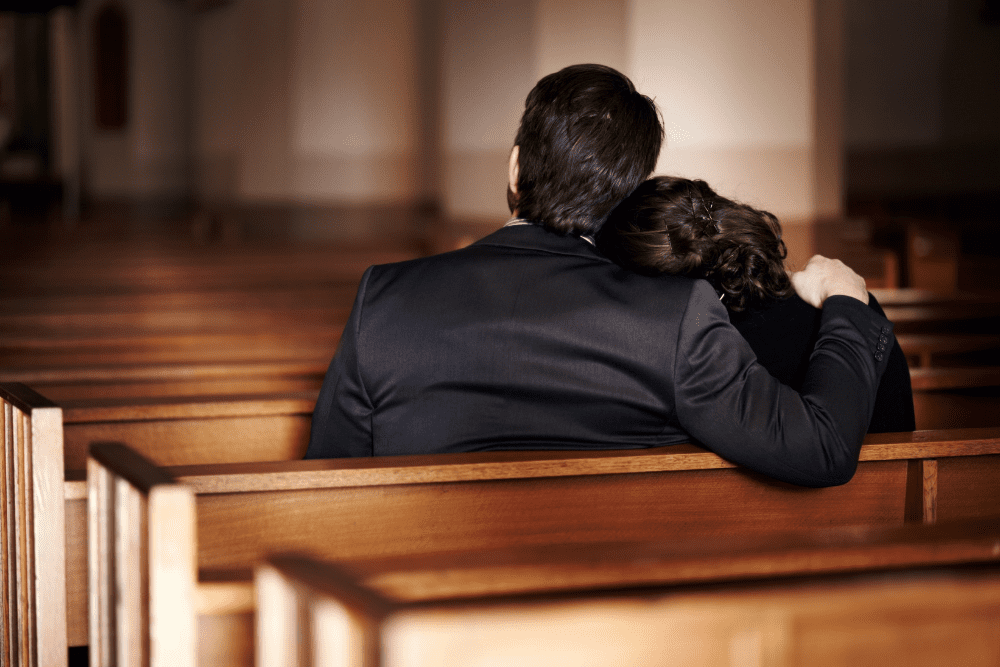Losing a loved one is hard. There’s no way around the feelings of sadness and grief you’ll experience for some time.
But if you lose a loved one in a way that seems preventable — an accident or misdiagnosed illness, for instance — you may find yourself wanting to take action out of a sense of justice or anger.
A wrongful death claim could be the right course of action for you. There is one catch in Florida, though. You cannot directly file this claim yourself, not even for a close family member or spouse.
Keep reading to understand the legal process of wrongful death claims in Florida.
What Makes a Death “Wrongful”?
Florida defines a death this way when another entity is legally at fault for the deceased’s demise. The claim will need to demonstrate that the entity being sued caused the death via:
- For example, causing a car accident with reckless driving
- Medical malpractice. A doctor, nurse, or other medical professional misdiagnosed or mistreated the deceased’s condition
- Defective product. Any number of malfunctions could cause fatal injuries
- Intentional act. Often, this is a crime
Florida Limitations in Wrongful Death Claims
Florida imposes two major rules on those who want to file wrongful death claims.
- The claim must be filed within two years of the date of death. This is known as a statute of limitations, a common restriction for many types of civil suits.
- The claim must be filed by the personal representative or “executor” of the estate. Personal representatives are often selected in the process of probate and will execution, not simply for lawsuit purposes. They will file the claim on behalf of the estate and the decedent’s surviving relatives, listing them as beneficiaries.
Murder and manslughter form two exceptions to the statute of limitations. A wrongful death claim can be filed at any time for these wrongdoings, whether or not arrest or criminal charges have occurred yet.
How Is Wrongful Death Different from Homicide?
This brings up the question of how wrongful death and homicide differ. The main contrast is in the substantiation of evidence required.
For criminal cases, guilt must be proven “beyond a shadow of a doubt.” Civil court, on the other hand, only calls for “a preponderance of the evidence,” meaning it’s very likely that the accused caused the death.
The personal representative will need to work with a lawyer to gather sufficient evidence during the discovery period of the claim. Discovery periods allow each side to collect documents, facts, evidence, testimonies, and any other pertinent information to be considered by the judge.
The important thing to remember is that you can still file a civil claim even as criminal charges proceed. Your wrongful death claim will help you recover personal losses.
What Damages Can Be Recovered?
Wrongful death claims can cover a wide range of damages the family suffered, including:
- Lost support and services from the deceased
- Loss of companionship regarding the deceased person’s spouse/partner and children
- Protection from mental and emotional anguish
- Medical expenses
- Funeral costs
The executor may also use the claim to recuperate damages to the estate in general:
- Loss of the decedent’s earnings from the date of injury to date of death
- Medical or funeral expenses charged to the estate
- Loss of prospective net accumulations from the deceased person’s reasonably expected income, given a natural lifespan
About the Author:
Andrew Winston is a partner at the personal injury law firm of Winston Law. For over 20 years, he has successfully represented countless people in all kinds of personal injury cases, with a particular focus on child injury, legal malpractice, and premises liability. He has been recognized for excellence in the representation of injured clients by admission to the Million Dollar Advocates Forum, and named one of America’s Top 100 High-Stakes Litigators. Mr. Winston is AV Preeminent Rated by the Martindale-Hubbell Law Directory, enjoys a 10.0 rating by AVVO as a Top Personal Injury Attorney, has been selected as a Florida “SuperLawyer” from 2011-2020 – an honor reserved for the top 5% of lawyers in the state – was voted to Florida Trend’s ”Legal Elite,” recognized by Expertise as one of the 20 Best Fort Lauderdale personal injury attorneys, named one of the Top 100 Lawyers in the Miami area for 2015-2017, and one of the Top 100 Lawyers in Florida for 2015-2017 and 2019.
 As Travel Increases, So Do Amusement Park Injuries
As Travel Increases, So Do Amusement Park Injuries 

















